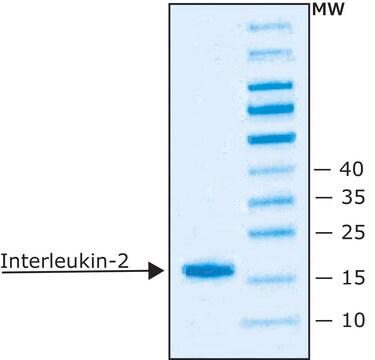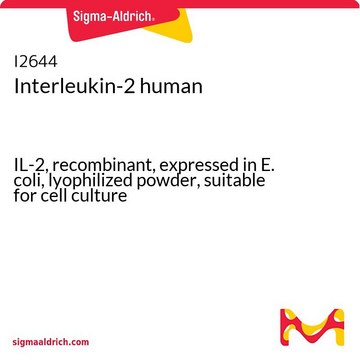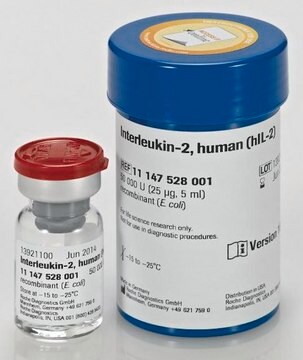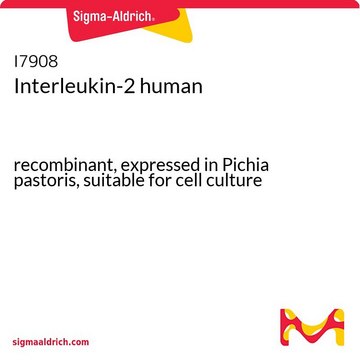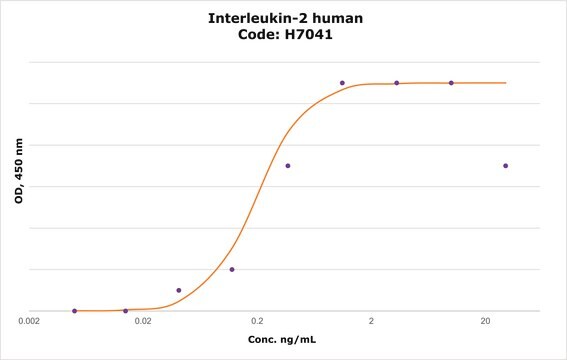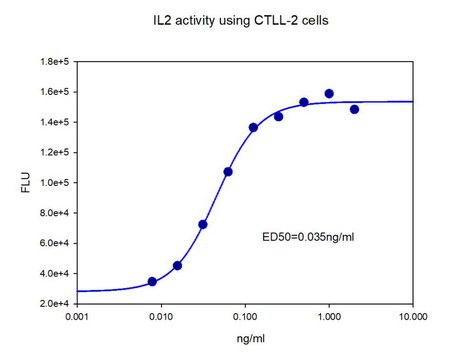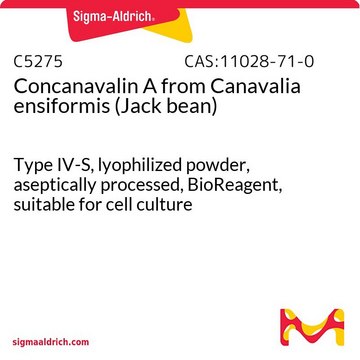I4161
IL-2 mouse
≥97% (SDS-PAGE), recombinant, expressed in E. coli, lyophilized powder, suitable for cell culture
Sinónimos:
mIL-2, IL-2, T-cell growth factor
About This Item
Productos recomendados
product name
Interleukin-2 from mouse, IL-2, recombinant, expressed in E. coli, carrier free
biological source
mouse
Quality Level
recombinant
expressed in E. coli
assay
≥97% (SDS-PAGE)
form
lyophilized powder
potency
≤0.2 ng/mL ED50
quality
endotoxin tested
mol wt
17.2 kDa
packaging
pkg of 5X20 μg
pkg of 20 μg
technique(s)
cell culture | mammalian: suitable
impurities
≤0.200ng/ml
color
white
UniProt accession no.
shipped in
dry ice
storage temp.
−20°C
Gene Information
mouse ... Il2(16183)
¿Está buscando productos similares? Visita Guía de comparación de productos
Biochem/physiol Actions
Physical form
Reconstitution
signalword
Warning
hcodes
Hazard Classifications
Eye Irrit. 2 - STOT SE 3
target_organs
Respiratory system
Storage Class
10 - Combustible liquids
wgk_germany
WGK 3
flash_point_f
Not applicable
flash_point_c
Not applicable
Certificados de análisis (COA)
Busque Certificados de análisis (COA) introduciendo el número de lote del producto. Los números de lote se encuentran en la etiqueta del producto después de las palabras «Lot» o «Batch»
¿Ya tiene este producto?
Encuentre la documentación para los productos que ha comprado recientemente en la Biblioteca de documentos.
Los clientes también vieron
Nuestro equipo de científicos tiene experiencia en todas las áreas de investigación: Ciencias de la vida, Ciencia de los materiales, Síntesis química, Cromatografía, Analítica y muchas otras.
Póngase en contacto con el Servicio técnico